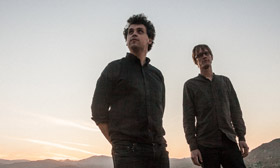
Ian Chubb, the chief scientist, has released a wonderful and bold statement about how he sees the future for Australia. The response from Ian MacFarlane, the minister for industry, to Chubb’s recommendations, was to tell scientists that they should speak out more and make their voices heard.
Scientists do, increasingly, speak out. We talk about our work and the importance of science, research and innovation. Our voices are getting louder, more prominent and more coordinated. MacFarlane’s admonition to do more was taken by some scientists as a wake-up call, but by others as a somewhat tone-deaf statement blaming us for our own funding troubles.
Nevertheless, on Wednesday, Eureka Prizes were awarded to some of Australia’s best researchers and teachers. Along with the prime minister’s prize for science, they are Australia’s pre-eminent prizes for scientific achievement. While the event was taking place, MacFarlane made a statement mocking science advocates as “precious petals” for their objection to the lack of a dedicated minister for science in government.
In the space of a fortnight we were encouraged to be advocates for science and then rebuked for “whinging” by a minister who in the same breath claimed to be on our side. That came as something of a shock.
Science isn’t an “industry” per se – it is a pursuit that requires money, sure, but most of all it requires time. It takes time to study a problem or answer a question; it takes time to build up a body of work; it takes time develop the research and research outcomes. The Eureka awards demonstrated the depth and breadth of Australia’s science current scientific and research capacity.
The research that won awards on Wednesday was wonderful. One was a study of the climate conditions after the First Fleet arrived, increase our understanding of post-European settlement. That’s important.
So was the research conducted by the CSIRO into the Hendra virus, which resulted in a vaccine and knowledge translatable to the study of Ebola. And so is research that is useful for industrial and marketable businesses.
You can either support scientists by giving them the conditions to make these discoveries and translate their work into something big, or you can pay us lip service – or worse, dismiss science as something unconnected to the wider community.
So Macfarlane’s comments, coming as they did at a time when scientists are calling for smarter thinking about how we fund science, are unfortunate and unhelpful. We’re considering the long-term importance of science and research in this country, not just our short term funding proposals.
We need to have a clear idea of where we want to be, as a nation, in 20 years time. What kind of manufacturing base do we want? What amazing things do we want to be responsible for inventing? How do we want to lead the world in innovation?
Much has been said and written about how Australia punches above our weight in research and innovation in the past and present. We have in no way reached our capacity. We need long-term research funding, clear translational mechanisms and strong links with business. We need more blue sky research, not less, and we need to figure out smarter ways of funding and translating it.
Most of all, scientists need allies in parliament, and increasingly it appears we have none. Acknowledging that isn’t being a “precious petal”, and it’s not whingeing. These are big-picture issues, these are long-term issues, these are dreams and ideas about what we think our country can do and how we can bring it into the future.











Comment from the paper
Steve Bell on RBS – cartoon
John Harris: It’s not just Scotland where politics as usual is finished
Gaby Hinsliff: Fat-shaming: how the slim and sanctimonious help to cause our obesity crisis